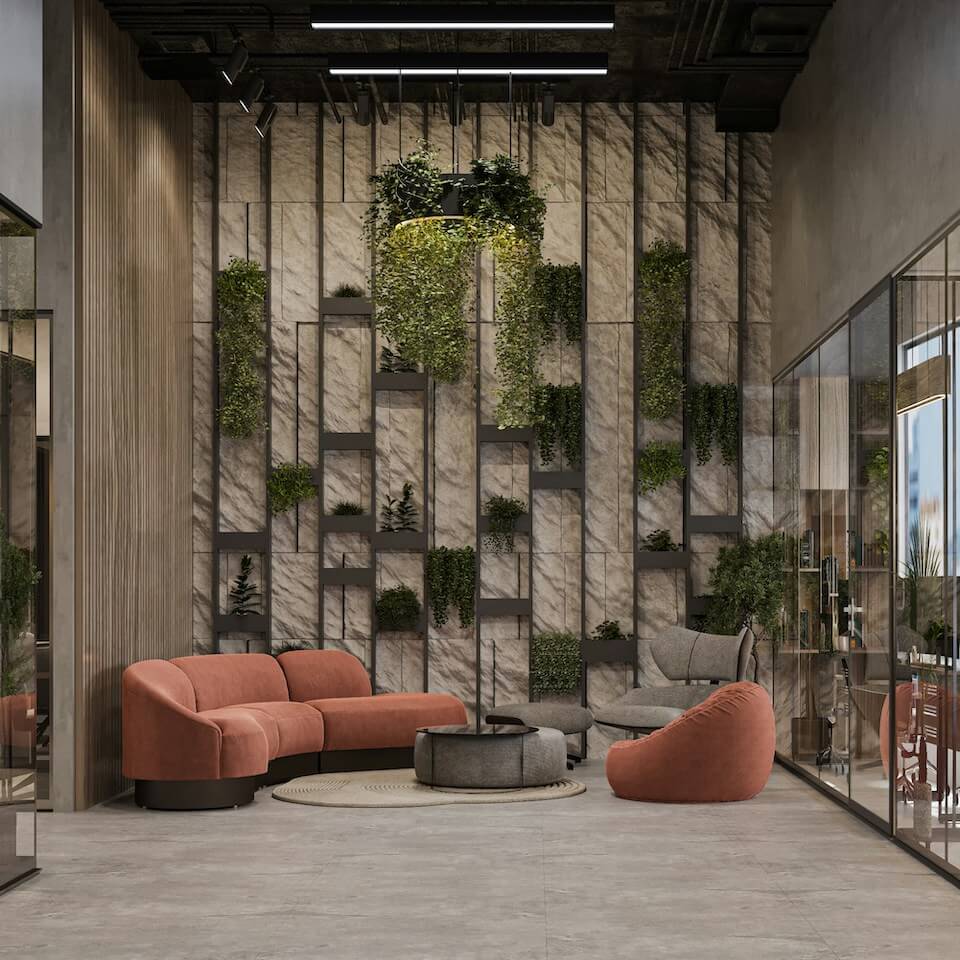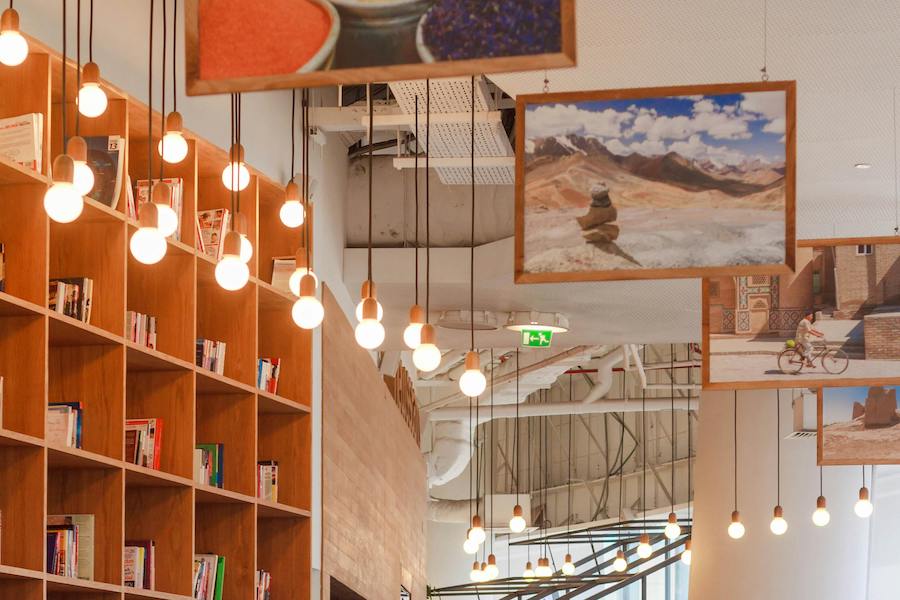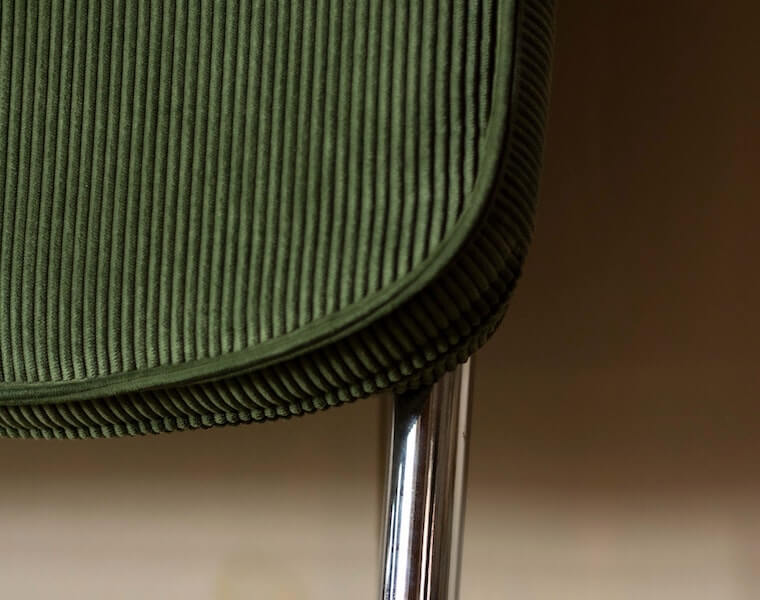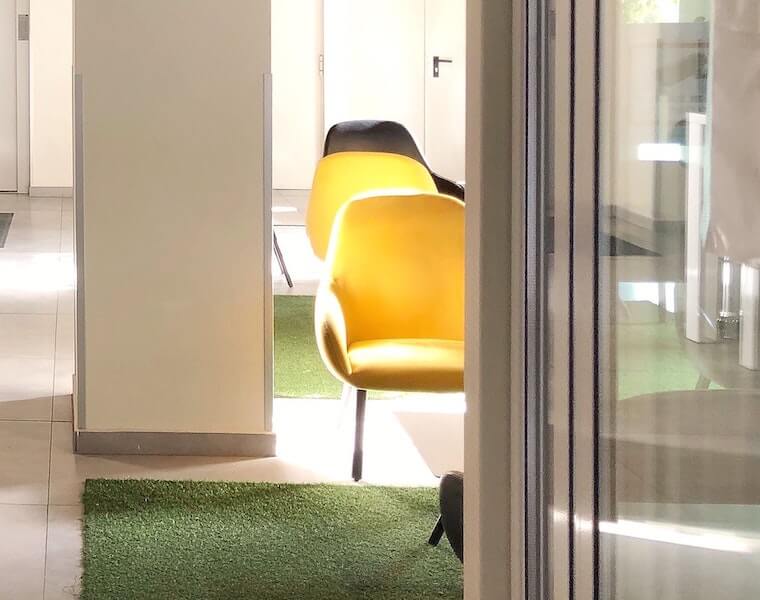A few years ago, we shared a blog post about designing multi-sensory offices, covering sight, sound, touch and air quality. Since then, smell has become an increasingly prolific factor when designing modern workspaces that take a holistic approach to design.
As well as what spaces look like, the textures, the sounds and the acoustics, smells are now more important than ever. In fact, interior scents have become such a hot topic that it has given rise to the concepts of ‘sensory branding’ and ‘scent marketing’.
In this blog post, explain what these concepts mean and how you can use the power of scent to your advantage when designing a functional and inclusive workspace for your employees.
What are sensory branding and scent marketing?
Sensory branding is where a brand develops its own signature scent – a unique fragrance formula that is designed to be as instantly recognisable in terms of brand familiarity as a logo or slogan.
The scent is chosen strategically to evoke certain emotions, feelings or actions in those who smell it. This strategy is called ‘scent marketing’ and is common in the high-end retail and hospitality sectors but is becoming increasingly popular in commercial office design too.
Does your business need a signature scent?
Popular brands that have a signature scent (sensory branding) or use scent marketing to influence their customers’ experiences include Abercrombie & Fitch, Hollister, White Company and one closer to home – Bruntwood.
Singapore Airlines is even known for having their flight attendants wear their signature brand scent as a perfume/cologne, as well as laundering their in-flight towels in the same fragrance.
However, it is important to note that your business doesn’t have to invest time and money into developing a signature fragrance to benefit from scent in the workplace.
As you will see through the rest of this blog post, there are plenty of ways you can introduce these advantages with regular, generic fragrances too.
The power of scent
Smells have the power to influence our emotions, feelings, experiences and even our memories, even if only on a subconscious level. Just think about how the smell of suncream reminds you of fond holiday memories and how the antisceptic aroma of the dentist often evokes far less pleasant feelings.
In fact, 75% of the emotions we generate every day are through scent. This is because scent is the sense that is most closely tied to the part of the human brain where memories and emotions live. The olfactory (scent) nerve is closest to the part of the brain that regulates mood, emotions, memories, focus and memory recall.
Where business is concerned, this supports brand recall and how customers remember a brand or their experience with the business.
Some facts & figures about scent marketing:
- A study by Nike found that 84% of people were willing to pay 10-20% more for shoes in a scented environment than those who were in an environment with no scent.
- A London nightclub doubled its sales of Malibu after introducing a coconut fragrance into the atmosphere.
- Exposure to pleasant smells has been proven to improve mood by 40% and boost creativity levels.
Scent and office design
Whether it’s in a hotel, a luxury retail store, a co-working space or a commercial office, being surrounded by pleasant smells is always a welcome interior feature.
That’s why scent is fast becoming such an instrumental part of ‘designing for joy’ and making the office a destination of choice—i.e., creating a working environment that makes people happy, prioritises their wellness, and fosters the type of place workers want to go.
Introducing ‘scentscapes’ or ‘smellscapes’ into your workplace isn’t just a nice-to-have, though. Scent has also been proven to positively impact things like efficiency, accuracy and overall morale among office workers.
Workplace facts & figures about scent:
- Japanese fragrance company Takasago published a study on several different scents and how they impacted how many typos office workers made. The results showed that lemon (54%) was the most effective in reducing typos, followed by jasmine (33%) and lavender (20%). This was in comparison to working in environments with no scent.
- A study carried out by Initial Hygiene on office executives revealed that almost all (93%) employees “feel appreciated at work if their office is scented”.
Incorporating fragrance into the working environment
If you are considering incorporating scent in your workspace, here are some key things to keep in mind.
Consider your reception scent carefully
Your reception or welcome space is the first impression people will have of your business in all ‘senses’, which is why you should give particular thought to the fragrance you use in there. If you do want to invest in a brand scent, this is the perfect place to diffuse it.
Implement zonal scenting
Use different scents in different spaces to evoke desired feelings. For example, in a social setting, you might introduce an aroma that encourages relaxation but in a meeting room, a fragrance that supports focus and concentration.
Less is more
Office smells need to be subtle and not overpowering. People spend a lot longer in the workspace than they do in a shop or a hotel bar, for example, so it’s essential that the scent isn’t a sensory distraction or overbearing.
Some popular smells
We’ve spoken before about the meaning of colour and how that applies to office design—it’s the same when it comes to smells. Different fragrances can evoke different feelings and influence different experiences of the physical environment.
Below are 10 popular aromas and what they bring to the workplace. Consider looking for these notes in the smells or signature brand scents you choose.
- Vanilla – calming and de-stressing.
- Citrus – boosts mood, energy, focus and attention.
- Lemon – helps reduce the fight-or-flight state of stress.
- Orange – unlocks creativity and problem-solving.
- Rose – evokes positivity and happiness.
- Lavender – relaxes and reduces decision-making response time.
- Mint – energising and stimulating.
- Rosemary – supports clear thinking.
- Cinnamon – reduces mental fatigue.
- Baking – improves social behaviour and interactions.
When selecting scent notes for your office ‘smellscape’, keep your specific workplace issues and requirements in mind.
For example, if you’re a design agency, you might benefit from orange scents that inspire creative thinking but if you work in a high-energy call centre, you might want a vanilla or lavender-based to help promote calmness.
Important things to consider
When introducing a ‘scentscape’ into your workspace, it’s essential not to do this without considering your employees specifically. You shouldn’t just add smells into all of your work settings without first factoring in the needs and requirements of all space users, including visitors.
Allergies
Make sure there aren’t any people with allergies you should be aware of before releasing fragrances into the atmosphere.
Health conditions
Ensure there are no employees with health conditions that could be aggravated or worsened if exposed to scents in the indoor air.
Neurodivergence
Smell can be a triggering stimulus for neurodivergent employees. We recommend having multiple settings that don’t introduce scent so that space users aren’t under constant exposure.
Cost
Your budget is also a key consideration. Large diffusers and air systems can be pretty expensive, so just make sure your cost expectations are aligned before moving forward.
Remember the subjective nature of scent
It’s also important to remember that scent is subjective. A scent that evokes pleasant emotions or nice memories for one person may not do the same for another. That’s why we recommend speaking to your employees (or space users) and involving them in the design of your workspace smellscape.
Looking to refurbish your office? Get in touch with our experts to learn more about how we can help make your project a success.










